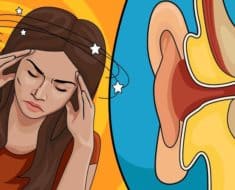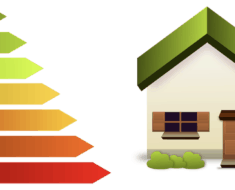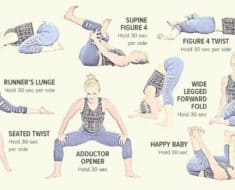
Life Line Screening
Heart rate monitors are increasingly popular ever since the ability was added to footstep trackers and other fitness tools.
At first, they were designed to help athletes tell when they were in fat-burning and cardio zones, to help make sure they could design their training for the most effective results.
Quickly, though, people began to realize that heart rate data has a lot more applications than just monitoring for fitness. The realization has created a whole new market with a range of heart rate watches for different kinds of consumers and different purposes.
This review will help you choose the right high-quality option for you, but we’re going to focus more on the advantages of a good heart rate monitor and why you might want to consider getting one (instead of just listing the ones that we think work best).
Heart Rate and Your Health
One of the biggest things you need to know about your heart rate and your health is that your resting heart rate can be as important as an indicator of your overall health as your active heart rate.
Your heart rate is a good indicator of what’s going on in your body at all times, from a low resting heart rate indicating good cardiovascular health, to spike in heart rate that can give you insight into your stress levels and triggers.
Heartrate monitoring devices can also be incredibly helpful for you and your doctor if you have any heart conditions or an in treatment for other cardiovascular issues. Having a better grasp of your day to day heart rate can help predict heart problems and even your risk of developing heart disease.
Working closely with your doctor, this valuable data can help inform your treatment decisions, and can tell your doctor when you’re entering a period of higher or lower risk.
The truth is that there are so many different ways keeping an eye on your heart health can help you, that there’s no one topic that covers all of the impact monitoring your heart rate can have. After all, your heart is the core of your cardiovascular system, and when it’s not functioning properly, nothing else will.
Of course, your heart isn’t completely in control of your health, and other conditions can impact your heart rate.
What Your Active Heart Rate Tells You
Your active heart rate is what most people monitor most closely when they first get a heart rate tracker. That’s because it’s natural to want to evaluate the quality of your workout, (did you make it into the fat-burning zone?), and because trends in your heart rate can tell you a lot about your cardiovascular health over time.
Heart rate monitoring is also particularly helpful for swimmers and other athletes who might not always have other physical indicators, like sweat or sore muscles, that show the impact of their workouts.
Help Understand Sleep Quality
Another often overlooked application for heart rate monitors is to help evaluate the quality of your sleep. These functions are usually combined with accelerometers that check for movement, but tracking your heartrate overnight can tell you when you’re getting your best rest, and even when your body is stressed from a nightmare.
Your heart rate tracker will even track disturbances like being woken by a loud noise since those disturbances cause a corresponding rise in heart rate.
Of course, that information is only useful if it’s used in combination with other sleep metrics, and if your wearable takes heart rate into account when calculating your sleep phase and quality. You should always look to see what metrics a heart rate monitor uses for your sleep phases since not all of them will consider some of the most important factors.
Stress Levels
Aside from helping you improve the quality of your workouts and helping you track and improve your sleep quality, your heart rate monitor can also tell you a lot about your stress levels. Some will even alert you when it seems like you’re going through a stressful period at work, or if your stress levels suddenly peak.
Your heart rate will tend to increase when you are stressed or concerned about something. That could be a tough time at work or it could be stress from personal conflict or an upcoming deadline.
The best stress-monitoring wearables send an alert or include breathing apps and exercises to help you return to normal stress levels. Since your heart rate is a reasonably good measure of your stress, heartrate monitoring can help you figure out what’s causing stress in the first place, as well as what techniques and tricks work to help calm it.
Pay attention to patterns like stress increases around the same time of day, or patterns of higher stress after a night of poor sleep.
Heartrate as a General Health Indicator:
Your heart rate can also be a good indicator of your general health, especially your resting heart rate.
Normal adults usually have a resting heart rate somewhere between 60-100 beats per minute.
If your resting heart rate is higher than that, it can be an indicator that you have low physical fitness. Adding in more exercise, even a short daily walk, can help to lower your resting heart rate.
If you’re in the middle of training for a marathon or are consistently working toward higher fitness goals, your resting heart rate can also tell you how much your cardiovascular health is improving.
The heart is, after all, a muscle. The more you work that muscle, the more efficient it becomes.
Trained athletes at the height of their physical fitness have lower resting heart rates than other adults and can even go as low as 40 beats per minute instead of the usual 60-100 beats per minute.
While heart rate watches can’t do it all, when you consider all these advantages and indications, it’s clear that they’re a valuable tool for monitoring your physical and even mental wellbeing.









































